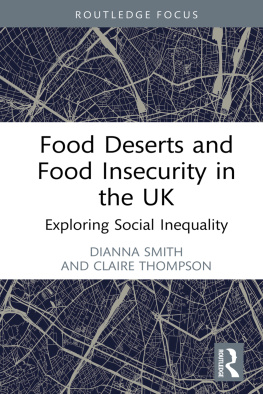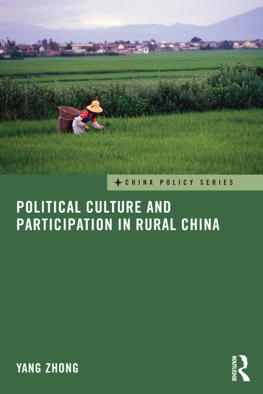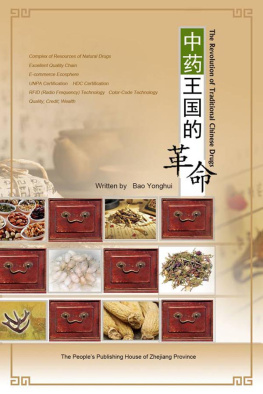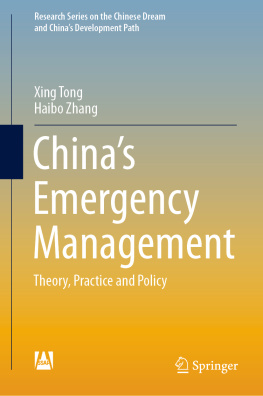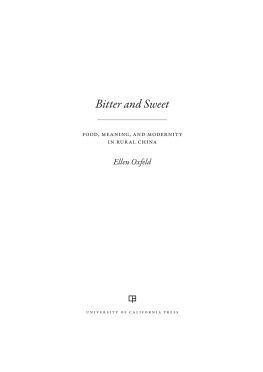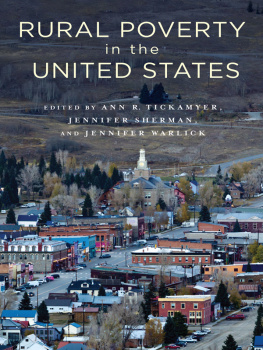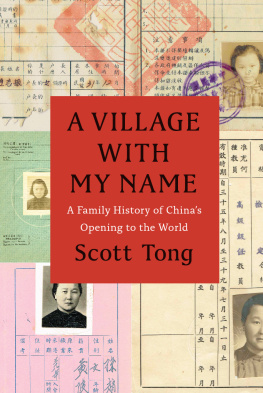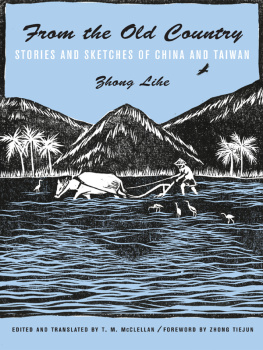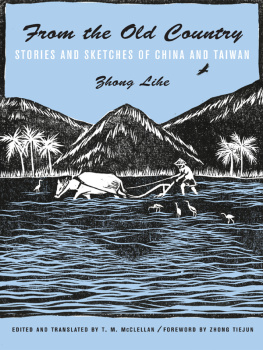ROUTLEDGE LIBRARY EDITIONS: BUSINESS AND ECONOMICS IN ASIA
Volume 28
POVERTY, FOOD INSECURITY AND COMMERCIALIZATION IN RURAL CHINA
First published in 1993 by the University of Guelph
This edition first published in 2019
by Routledge
2 Park Square, Milton Park, Abingdon, Oxon OX14 4RN
and by Routledge
52 Vanderbilt Avenue, New York, NY 10017
Routledge is an imprint of the Taylor & Francis Group, an informa business
1993 Zhong Tong
All rights reserved. No part of this book may be reprinted or reproduced or utilised in any form or by any electronic, mechanical, or other means, now known or hereafter invented, including photocopying and recording, or in any information storage or retrieval system, without permission in writing from the publishers.
Trademark notice: Product or corporate names may be trademarks or registered trademarks, and are used only for identification and explanation without intent to infringe.
British Library Cataloguing in Publication Data
A catalogue record for this book is available from the British Library
ISBN: 978-1-138-48274-6 (Set)
ISBN: 978-0-429-42825-8 (Set) (ebk)
ISBN: 978-1-138-36899-6 (Volume 28) (hbk)
ISBN: 978-0-429-42890-6 (Volume 28) (ebk)
Publishers Note
The publisher has gone to great lengths to ensure the quality of this reprint but points out that some imperfections in the original copies may be apparent.
Disclaimer
The publisher has made every effort to trace copyright holders and would welcome correspondence from those they have been unable to trace.
ABSTRACT
POVERTY, FOOD INSECURITY AND COMMERCIALIZATION IN RURAL CHINA
Zhong Tong | Advisor: |
University of Guelph, 1993 | Professor Wayne Howard |
This study analyzes the relationship among poverty, food insecurity, and commercialization in rural China by employing agricultural household models. Data are derived from a 10,000 household subsample of the annual rural household consumption and expenditure survey.
In general, rural China appears to have no serious food insecurity issue, primarily because land is equally distributed. Groups which are identified as food insecure from sample data are not poor in income, and behave more as if they have strong preferences for producing and/or consuming commodities other than food.
The results of econometric models of rural household supply and demand for staple food show that both own-price and cross-price elasticities of marketed surplus of grains are high, and in both affluent and poor areas. However, among low income groups, the profit effect is sufficient to turn the own-price elasticity negative.
Overall increases in market prices of food should result in significant increases in marketed surplus. However, government only controls quota amounts and prices, and if it promotes commercialization by increasing quota prices or eliminating quota procurement requirements, marketed surplus is likely to decline sharply.
ACKNOWLEDGMENTS
I would like to express great appreciation to the International Food Policy Research Institute (IFPRI) for offering a wonderful research facility and generous assistance. I am grateful to my colleagues, Josh Rozen, Nicos Perez, Joachim von Braun, Tricia Klosky, and Jane He for providing exceptional help.
I thank my supervisor, Professor Wayne Howard, for his patient supervision, and Professor Erna van Duran, whose advice and organization was so helpful. I am also very grateful to all committee members, besides Professor van Duran and Howard, Professor Kokchiang Tan and Professor Truman Phillips, for their encouragement and helps at the last stage.
Finally, I am indebted to my husband, Tom Wiens, without whose financial support, emotional encouragement, and generous help, this thesis would have taken longer to reach fruition.
List of Tables
List of Figures
The Chinese government, for over a decade, has been carrying out rural economic reforms by employing a policy of decreased control over production, market activities, and income distribution in order to provide an incentive structure favouring increased production, and especially commercial production in the rural areas. This has been generally successful in raising incomes and solving the food insecurity problem in most areas. However, certain groups have been left behind in the general progress - the inhabitants of poor regions and perhaps also the most impoverished portion of the rural community within the more advanced regions. In 1985, there were 102 million rural poor, or was ten percent of the total population, and the extreme poor were 40 million (OLGEDPA, 1989).
Prior to 1985, the government has dealt with this poverty problem by providing special subsidies or relief (Blood transfusion), but the gap in incomes has continued to grow and is politically embarrassing for a socialist government. The poverty problem touches some especially sensitive nerves, as many of the poverty areas are also old revolutionary base areas, a wellspring of support for the revolution, while others are inhabited by minority peoples whose relationship with the Han (Chinese majority) dominated government has long been problematic. Some of these latter are border areas where the political support of the local population has strategic importance. In response, the government has begun to change its approach, moving from blood transfusion to blood making, by providing increasing amounts of investment assistance (including infrastructure improvement) in the hope of raising productivity. It also seeks to expand the scope of commercial production in the poverty areas, in the belief that only by moving away from a subsistence orientation is there hope that the poor may escape permanently from poverty.
Poverty is often reflected in a combination of low incomes and inadequate food consumption. Therefore, poverty alleviation policy commonly addresses the issue of food security. In doing so, the temptation is to focus on farm self-sufficiency as a goal, to the exclusion of commercialized approaches to food supply. If the government exercises administrative control over farming, it can direct the majority of resources to food production, force a subsistence orientation, and/or develop a rationing system to equalize food consumption regardless of income. If the government avoids direct administrative controls, it can mainly influence relative prices, leaving individual farmers to decide how much to sell and how much to consume. In such a market-driven farming system, the question remains whether, with growth of commercial production, market forces will largely solve the food security problems of the poor, or whether special administrative measures need be taken to address food security problems?
Food security for the whole population was one of the major goals of the Chinese government in constructing socialist China - a goal for which great efforts were exerted. The government adopted food self-sufficiency as its general food security policy. To increase the overall availability (production) and guarantee food access to the whole population were the two main concerns. Land reform (lasting several years from 1949) tended to equalize the resources available to all farmers and, by abolishing rents, to enable food self-sufficiency (Walker, 1984). The policy of Unified Procurement and Sale (implemented after 1953) guaranteed low-priced ration grain to urban residents, and reliable marketing at completely stable prices to farmers (i.e., no market risk) (Walker, 1984). Collectivisation (from cooperatives in 1955-57 to communes in 1958-83) reduced disparity in household resources and ensured virtually equal food consumption regardless of effort or wealth (Barnett, 1979).



